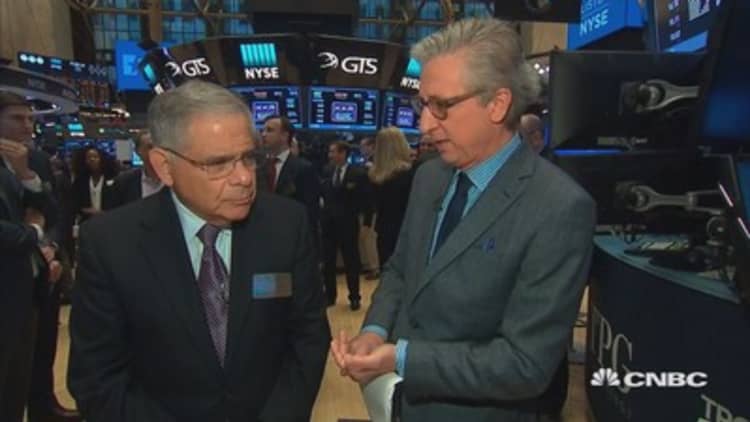
The NYSE floated an unusual investment vehicle Friday that, in a way, is a bet on lower oil prices.
The company is TPG Pace Energy Holdings, and the investment is a SPAC (special purpose acquisition company). A SPAC is what is called a "blank check company" — essentially a blind pool of money that is going public. It's not an operating company since there is nothing to manage. At least not yet.
TPG just floated 60 million shares at $10 on the NYSE. This is the first SPAC ever listed on the main NYSE market, according to the exchange.
What's the purpose? With a SPAC, you are essentially betting on a team that will be buying assets in a particular industry. In this case, it's energy.
TPG is run by Steve Chazen, a well-known industry executive, formerly CEO of Occidental Petroleum.
Here's what makes the story interesting: Investors have just handed Chazen roughly $600 million and told him to go out and buy energy assets. Chazen is essentially charged with buying oil and gas properties on the cheap.
Simply put: TPG is a bet that Chazen will be able to buy cheap energy and make money off of it. Chazen thinks it is very likely oil will stay "within $5 on either side of $55" for some time.
There are already a few SPACs on the Nasdaq and on the NYSE MKT, a small-cap-focused market operated by the Big Board formerly known as the American Stock Exchange. An NYSE official told me that they revised the rules of the main NYSE market last year to make them more attractive to SPAC listings and align them with their main competitor, Nasdaq.
Check out more in my interview with him.


